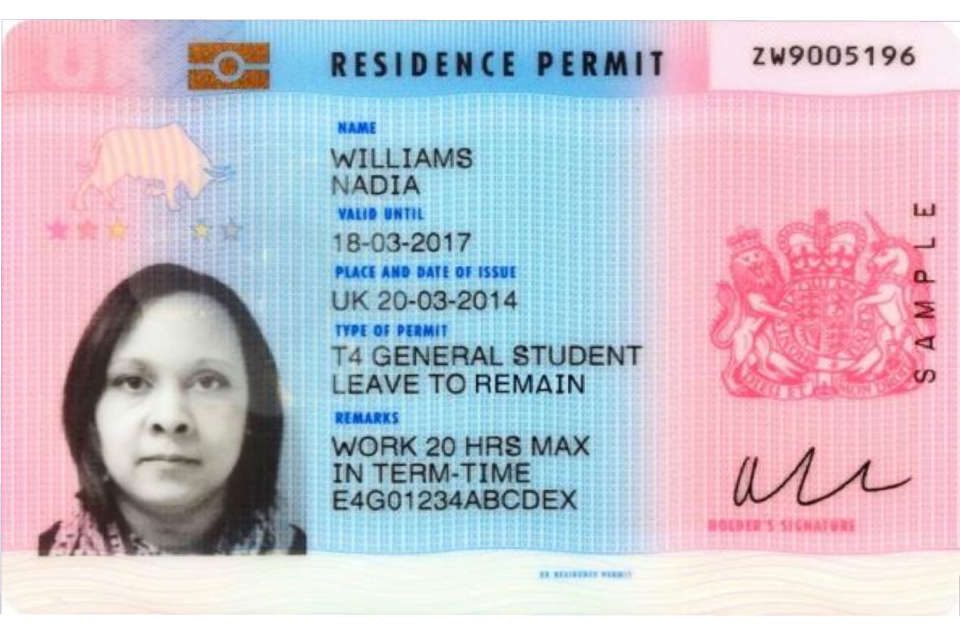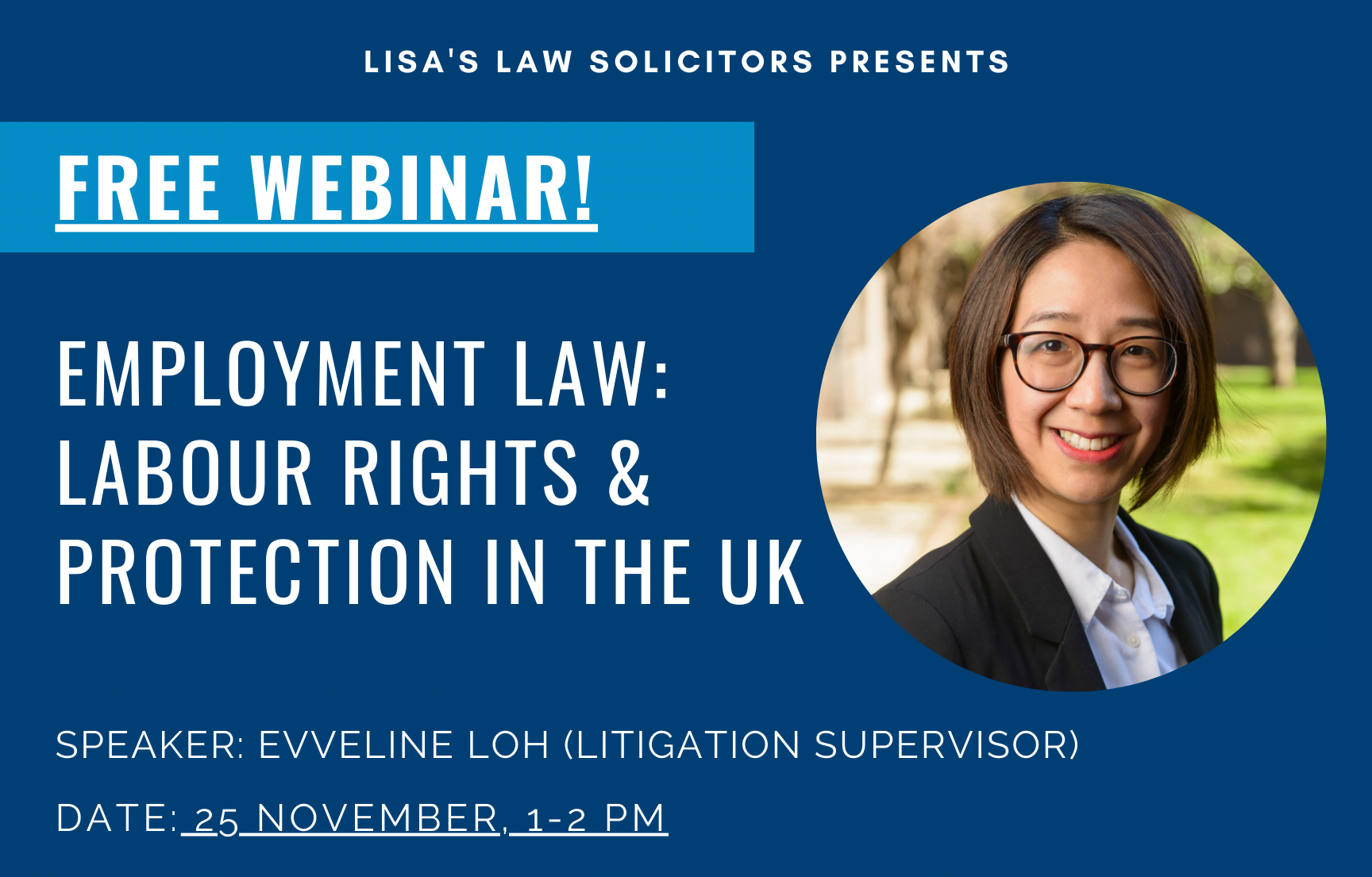A Biometric Resident Permit (BRP) is a fundamental document which is used by foreign nationals in the UK or those who have a visa or have immigration permission to work, study or live in the UK. It provides evidence of your immigration status in the UK, and can be used to confirm your:
- Identity
- Right to study
- Right to any public services or benefits you’re entitled to.
The BRP also contains the following information:
- your name, date and place of birth
- your fingerprints and a photo of your face (your biometric information)
- your immigration status and any conditions of your stay
- whether you can access public funds, for example benefits and health services
As a result, it is an essential document for life in the UK for those from outside the UK
Do I need a BRP?
You will usually need a BRP if you have:
- applied to come to the UK from outside of the UK for longer than 6 months
- extended your visa to longer than 6 months
- applied to settle in the UK
- transferred your visa to a new passport
- applied for certain Home Office travel documents
However, you won’t get a BRP if you used the UK Immigration: ID Check app to prove your identity when you applied for the visa.
While you used to be able to use it to confirm your right to rent and right to work, this is no longer the case. You can confirm your right to work and right to rent online.
The government is planning on transitioning to a digital immigration system, meaning that all BRPs are set to expire at the end of 2024. So don’t worry if your BRP says that it will expire by the end of December, this is the same for everyone with a BRP. However, for the time-being, they are completely essential, meaning that it is important to read this guide in order to find out everything you need to know about the BRP.

How do I get a BRP?
Giving your biometrics (fingerprints and photo)
To get a BRP, you must provide your fingerprints and a photo. For overseas applicants, this is generally provided at the local visa application centre. Please note that the fee for applications made in the UK is £19.20. If you apply from outside the UK is cost is included in the application.
For applications in the UK, most biometrics are provided at either:
- a UK Visa and Citizenship Application Services (UKVCAS) service point
- a Service and Support Centre (SSC)
If you applied from outside the UK
If you applied from abroad, then you will need to collect your BRP once you arrive in the UK. These can be collected from the Post Office, see here, and usually need to be collected before the vignette sticker in your passport expires or within 10 days of arriving in the UK. You will need to bring your passport or travel document with the vignette sticker in it.
Usually after submitting the visa application, a confirmation letter (Decision Letter) about receiving the BPR card will be returned together with the passport. The parties need to keep it properly and store it in their carry-on luggage, because this confirmation letter may be required to be shown when entering the country.
As mentioned at the beginning of the article, the person concerned needs to enter the country with a temporary visa, and the validity period of the temporary visa is only 30 days. If the parties cannot travel within 30 days after obtaining the temporary visa, they must apply for a new temporary visa.
Please note that during the visa application process you will need to select which Post Office branch you wish to collect your BRP from. If you then wish to collect it from another branch then you will need to pay a redirection fee. If you are an international student, you may be able to collect it at your university.
If you would rather collect the BRP from an Alternative Collection Location then you can also do so.
After successfully arriving in the UK, the parties must collect the BRP at the designated place within 10 days of entering the UK. It should be noted that if you forget or overdue to collect, you may face the risk of a fine of up to 1,000 pounds !
Please note that the recipient must be at least 18 years old . Those under the age of 18 must go to collect the card with their parents or legal guardians when they collect the card.
If you encounter any problems in the process of receiving the BRP card, for example, the BRP has not arrived at the designated post office, and you have lost your passport or confirmation letter (Decision Letter) before collecting the card, you need to report to the Home Office beforehand.
If you applied in the UK
If you applied for a BRP card in the UK, then the process is a bit simpler. In this case the BRP will generally be sent to the address you gave in your application, which is likely you or your lawyer. On the whole, your BRP will arrive within 10 days of the Home Office giving your decision letter saying you can stay in the UK.
You will get a text and email from a delivery company telling you when your BRP will arrive as well as how to change the delivery time and date. Someone over the age of 18 will have to be there to receive the BRP, and will need to provide proof of identity such as their passport, driving licence or national identity card.
How to prove immigration status without a BRP
If you haven’t received your BRP yet, or if it has been lost or stolen, then you may be able to prove your immigration status another way.
If you need to prove your immigration status to a government department or the NHS, you should tell them that your BRP has not arrived. They will then contact the Home Office to confirm your status.
If you need to leave or re-enter the UK before your BRP arrives, then you will need to apply for a replacement BRP visa. These cost £154 and will let you re-enter the UK once only. Apply for a replacement visa here.
What to do if you find out that the BRP information is wrong?
According to the latest guidance document issued by the Home Office applicants can do the following:
If the applicant finds an error after receiving the BRP card then the applicant can notify the Home Office directly through this website: https://www.gov.uk/biometric-residence-permits/not-arrived
You should report a problem with your new BRP when it arrives within 10 days, otherwise you may have to apply and pay for a replacement. You can report a problem with your new BRP here.
When reporting, applicants generally need to provide the following information.
- your BRP number
- your full name, date of birth and nationality as they appear on your BRP
- an email or postal address
You should usually hear a response within 5 days. If it takes longer, this is generally because you didn’t provide an email address.
Parties can ask a legal representative, a charity, employer, college or university to assist in contacting the Home Office to make changes.
My BRP has been lost or stolen, what should I do?

Although you are able to report your lost or stolen BRP from inside or outside the UK, you are only able to apply for a BRP from inside the UK.
If your BRP was valid for 3 months or more, you must report or apply for a replacement within 3 months of losing. If you do not then you risk being fined £1000 and even being removed from the UK!
You must do the following in each circumstance:
- report it as lost or stolen if you do not intend to remain in the UK after its expiry date
- apply for a replacement if you plan to leave and re-enter the UK within 3 months of its expiry date
- apply to extend your visa if you want to stay in the UK after its expiry date – if granted, you’ll automatically get a new BRP
If you’re outside the UK, you must apply for the replacement visa mentioned previously which cost £154 and can be used once to re-enter the UK.
After the parties successfully get the BRP replacement visa and return to the UK, they must apply for a new BRP card within one month , which can also be done directly online https://visas-immigration.service.gov.uk/product/ biometric-residence-permit-replacement-service.
If you have been away from the UK for 2 years and lost your documentation which proves your right to be in the UK, you can apply for a returning resident visa: https://www.gov.uk/returning-resident-visa
How to change the personal status/information on the BRP?
If the personal status or personal information of your BRP changes, you are obliged to report to the Home Office, and usually have to apply for a new BRP.
There are different paths to change depending on the person’s visa type or immigration status. However, it is much easier to do so if you simply wish to change your address. To change your address on your BRP, you can do so here.
However, if you wish to post the form instead, then you can print it out using this link and send it to the link on this form: https://www.gov.uk/government/publications/notification-of-change-of-circumstances-form-mcc
However, if you want to change personal information on the BRP (including name, date of birth, gender, nationality and facial appearance then you will have to apply for a replacement visa online. You will need to pay a fee. See here.
For any other changes, including a criminal conviction, as well as family information such as separation from your partner or if any of your children stop living permanently with you, you must fill in the change of circumstances form and send it to the address on the form.
Remember, if you fail to apply for a new BRP card within 3 months of the change of personal status or information, you may be fined up to £1,000, and the validity of your visa may even be shortened.
How to update a BRP when it is about to expire?
How to replace an expired BRP card mainly depends on whether the person is in the UK or not, as well as his/her immigration status.
If you have indefinite leave to remain or enter, then you can use the BRP replacement service from within the UK.
If you are holding a visa with a limited period , and the visa is about to expire, it is necessary to apply for a new BRP. This must be renewed or applied for a new visa first, and a new BRP will be automatically obtained after the visa is successfully obtained. People in this case can’t use the BRP replacement service.
If you are outside the UK, then you cannot apply for a replacement visa if it expires. You will also need to apply for a replacement visa in this circumstance.
If you would like help with your BRP, or you have some questions that you would like to ask about it, then get in touch with us today and our immigration department will be happy to help.
Have questions about this article? Get in touch today!
Call us on 020 7928 0276, our phone lines are open and we will be taking calls from 9:30am to 6:00pm.
Email us on info@lisaslaw.co.uk.
Use the Ask Lisa function on our website. Simply enter your details and leave a message, we will get right back to you: https://lisaslaw.co.uk/ask-question/
Or, download our free app! You can launch an enquiry, scan over documents, check progress on your case and much more!



















